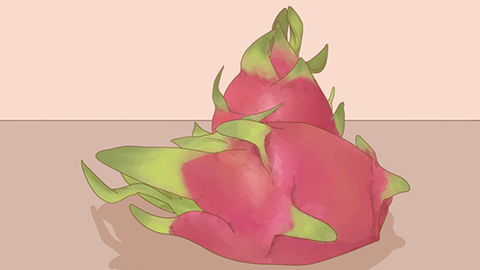Can you eat dragon fruit during your period in winter?
Generally, during winter menstruation, women with good physical constitution, no obvious dysmenorrhea, and who consume only a small amount of room-temperature pitaya (dragon fruit) can usually eat it. However, it is not recommended for women with a cold body constitution, severe menstrual pain, or those consuming chilled pitaya straight from the refrigerator. If in doubt, it is advisable to consult a healthcare professional in advance. Detailed analysis is as follows:

If a woman generally has a good constitution, experiences no significant chills, abdominal pain, or other discomfort during menstruation, and chooses pitaya stored at room temperature, eating a small amount (e.g., 1/4 of a fruit) occasionally—especially when paired with warming foods such as red dates or longan—is acceptable. Pitaya is rich in vitamins and dietary fiber, which can help supplement nutrients needed during menstruation. Consuming it in moderation will not irritate the body or worsen menstrual discomfort.
However, for women with a naturally cold constitution who often suffer from cold hands and feet, experience severe menstrual cramps, poor menstrual flow, or blood clots during their period, or intend to eat chilled pitaya taken directly from the refrigerator, consumption is not advised. Pitaya is inherently cooling in nature, and when refrigerated, its cold properties intensify. This may further stimulate uterine contractions, aggravate menstrual pain, potentially hinder the discharge of menstrual blood, prolong the period, increase the number of blood clots, and negatively affect menstrual health.
Before consuming pitaya during winter menstruation, ensure the fruit is at room temperature—avoid eating it chilled. Adjust the portion size according to your body’s response during menstruation, and discontinue immediately if any discomfort occurs.








